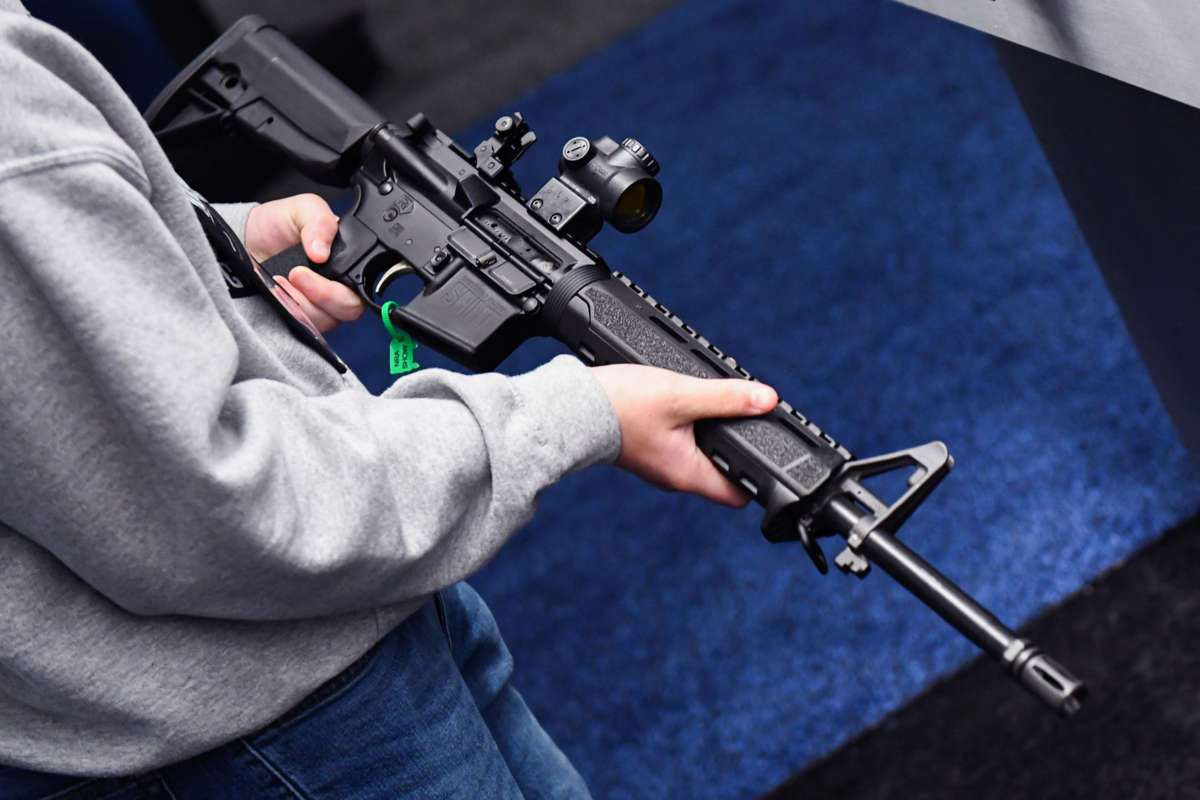Did you know that Truthout is a nonprofit and independently funded by readers like you? If you value what we do, please support our work with a donation.
After every high-profile mass shooting, firearm sales spike. And with every gun and bullet sold, more federal tax dollars flow to the states under a Depression-era law that was intended to benefit wildlife but now is increasingly used to promote the gun lobby’s agenda.
It’s time to get guns out of wildlife conservation.
The firearms industry and state wildlife agencies have been joined at the hip since Congress passed the Pittman-Robertson (PR) Act in 1937. The law redirected an existing federal tax on firearms and ammunition to the states to help restore depleted game populations.
At the time, taxing firearms to produce more game animals to benefit hunters under a “user pays” model made sense. It was assumed that most gun owners were hunters, and hunters were seen as the main “users” of wildlife.
The gun industry saw the long-term benefits. Gun manufacturers were already paying a federal tax on their products but the money disappeared into the treasury. By redirecting those funds to the states for wildlife purposes, the PR Act converted those taxes into an investment in projects that would provide more hunting opportunities, and, ultimately, lead to more gun sales.
The model worked as intended for years. States have used PR Act funds to restore populations of hunted species such as bighorn sheep, deer and wild turkeys.
The proliferation of guns in the U.S., however, has upended this “user pays” model. Nonhunting gun buyers have far surpassed hunters as the main source of PR Act funds. An estimated 74 percent or more of guns purchased today are not typically used for hunting, including handguns and the AR-15 type rifles.
While hunting in the U.S. has been declining for decades –– less than 5 percent of Americans reported hunting in 2016 — gun sales have skyrocketed, resulting in a windfall for state wildlife agencies. A total of $1.1 billion in PR Act funds were disbursed in fiscal year 2022, triple the amount disbursed just 10 years earlier.
Wildlife agencies have long prioritized the interests of hunters over conservation. The recent huge jump in PR Act receipts has opened the door for nonhunting gun owners to join hunters as the favored “paying” constituents of wildlife managers, pushing the agencies further away from a true conservation mission.
What the agencies, gun lobby and hunting groups all have in common is not necessarily a desire to protect wildlife, but a goal of maximizing opportunities to use firearms and to hunt.
This convergence of interests has not been good for wildlife. Consider these issues on which wildlife managers, hunting groups and the gun industry have generally coalesced around a position that favors gun use and hunting over conservation:
- Opposed efforts to ban the use of lead ammunition for hunting, despite a scientific consensus that lead bullet fragments cause widespread poisoning of eagles and other scavengers;
- Supported a major expansion of hunting on national wildlife refuges;
- Opposed efforts to protect wolves and other species under the federal Endangered Species Act (which does not allow hunting of protected species);
- Supported wildlife killing contests.
Congress elevated the status of the gun lobby in wildlife matters in a dramatic fashion when it passed, with bipartisan support, the “Modernizing the Pittman-Robertson Fund for Tomorrow’s Needs Act” in 2019. The bill added the terms “recreational shooter” and “recreational shooting” to the text of the Pittman-Robertson Act, and authorized the use of PR funds for “R3” programs (“recruit, retain and reactivate”) to persuade more people to buy guns and take up hunting and target shooting.
The states and the gun industry had been investing in R3 efforts for years, but passage of the bill made millions of additional federal dollars available for these programs. PR Act funds are now going to the states and groups like the National Shooting Sports Foundation to promote gun ownership and target shooting as well as hunting.
Hold on. At a time of rising gun violence, when there are more guns in the U.S. than people, does it make any sense to be using public funds to encourage more gun use? And, in the face of a mass extinction crisis and climate change, should the urgent and life-affirming task of protecting wildlife continue to be financed by the sale of items associated with so much death and violence?
It’s time to decouple conservation from guns entirely and find new sources of broad public funding for wildlife protection. The millions of dollars raised by taxes on firearms and ammunition under the Pittman-Robertson Act should be redirected to where they are most appropriately applied: reducing gun violence in the U.S.
Media that fights fascism
Truthout is funded almost entirely by readers — that’s why we can speak truth to power and cut against the mainstream narrative. But independent journalists at Truthout face mounting political repression under Trump.
We rely on your support to survive McCarthyist censorship. Please make a tax-deductible one-time or monthly donation.
